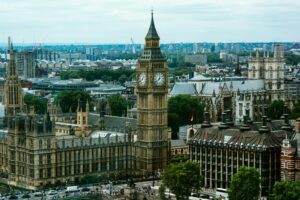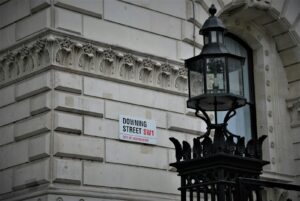Out with rhetoric, in with honest dialogue
April is always the cruellest month for local politicians with the prospect of local elections. The only consolation is the fitness levels achieved at the end!
This year it felt a little strange; not only was there a very positive reception for my party but there was also a real anger about the way the country is going. No doubt you would expect me to point this out and to devote the rest of this column to a denunciation of the ruling coalition but let’s take that as read and move on to a more fundamental examination of the political process. In particular I want to discuss the relationship between political parties and the electorate.
I happen to believe that politics is a noble profession. Mind you, I also believe that local government should be fun! Both these rather eccentric views have been challenged recently.
I feel the key task for politicians is to be honest with the electorate and explain difficult issues in a straightforward manner. It also helps if there is a genuine dialogue. Recently however I have felt that it has not been so much a dialogue as a shouting match.
Of course some political parties have shot themselves in the foot. We have had the continuing scandals over party funding and a budget that has come to symbolise a political elite running the country that is out of touch with the needs of ordinary people. Despite all this I worry about an increasing alienation from our governing institutions. In particular its effect on local government.
I am under few illusions about a so called golden age of council elections in the recent past. Around 33% was the normal turnout in Birmingham in the 50s and 60s, for example, but there was a national fall in participation this year of three or four percentage points.
In one sense given that it is the governing parties that are most affected, it would be nice to sit back and enjoy it but there is a real worry about the future. The rise of far right parties and those representing no party at all is something that we ignore at our peril. Along with the overwhelming majority of ‘I am definitely voting Labour this time’ there were a few ‘your are all the same’ and somehow over the next four years we have to collectively regain trust. Some have suggested that mayors are the answer. I worry that once again we think by tinkering with the process we can change the form of engagement. I think it is more fundamental than that.
Firstly, I think we need a different form of community politics. It cannot simply be about filling potholes or cheap political stunts but about opening up a genuine dialogue.
Secondly, it has to be about greater direct control the system of devolved budgets in Salford has opened up the genuine prospect of participation. It has also had the desirable side effect of illuminating the genuine dilemma in decision making. As communities weigh up the desirability of replacing fencing rather than traffic calming they start to appreciate the wider difficulties councils face.
Finally, I believe that collaborative working such as that provided by the Greater Manchester Authorities offers new opportunities to affect the outcome of the debate between central and local government. In a later post I want to talk about the implications of the Greater Manchester city deal but I also want to develop a new theme. How does the individual interact with the state? The failure to participate in our democratic institutions is, I believe, tied up with the failure to engage with society generally and it is the biggest problem facing us.
The age of deference is long gone and a good thing too. For politicians I want to replace it with an age of honest dialogue rather than rhetoric and a belief that however hard or uncomfortable an issue we should be prepared to have a conversation.








